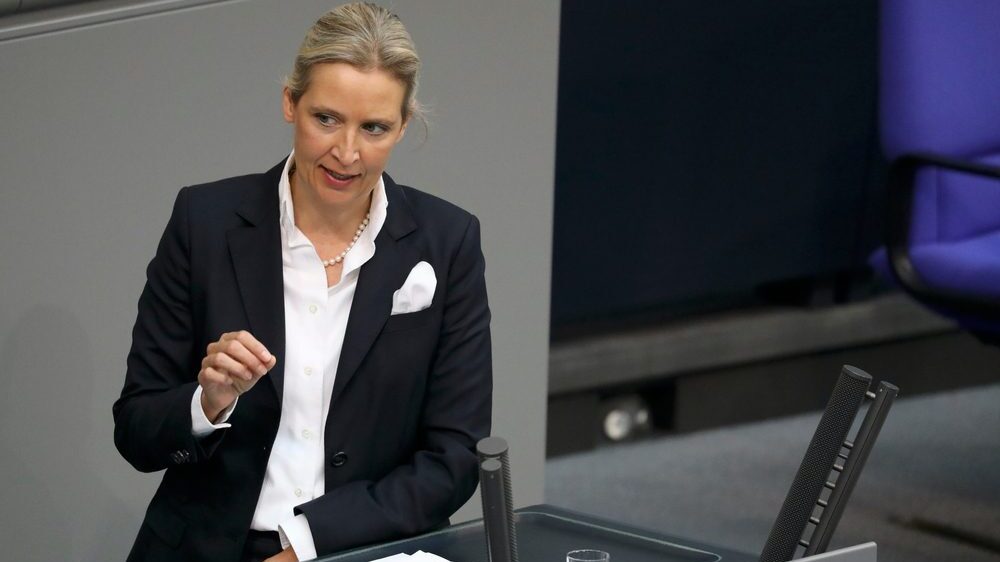
Alice Weidel.
Photo: Juergen Nowak / Shutterstock.com
In a leading motion published days ago that lays out its party program for next year’s European election campaign, the Alternative für Deutschland (AfD) party, which has seen its popularity in Germany explode over the past months, has called for the “orderly dissolution of the European Union,” insisting that the institution, at this stage, is completely unreformable.
“Our patience with the EU is exhausted. We are therefore striving for the orderly dissolution of the EU and want to found a new European economic and interest community instead, a federation of European nations. The EU project failed,” the leading motion of the Federal Program Commission for the European elections program, in which the party’s co-leaders Alice Weidel and Tino Chrupalla sit, reads.
The motion goes on to say that the “EU and the globalist elites supporting it” have abandoned the “original idea of the founding fathers of a European community” many years ago. Furthermore, it argues that the EU has “developed into an undemocratic construct” that is increasingly governed by a “non-transparent, uncontrolled bureaucracy.” The institution, therefore, is no longer “reformable,” according to the AfD’s leadership.
Additionally, the AfD calls for the European Parliament to be abolished. “Until the situation is reorganized,” legislative competencies should be transferred exclusively to the European Council of Member States, which is made up of the heads of government of the 27 EU member states. However, European Council members should “have to be bound by the decisions of national parliaments,” the motion suggests.
The party also calls for “decisions on all fundamental EU issues” to be made via national referendums. Whether or not Germany remains in the European Union should also be decided by a referendum, while a swift exit from the euro and a return to national currencies is also advocated for in the motion.
Should the EU continue to exist in its current form, however, the AfD’s leadership states that it will continue to campaign against “restrictions on national sovereignty and further redistribution of wealth and assets of our citizens through EU regulations.”
With regard to Germany’s relationship with Russia, AfD bosses acknowledged that Russia’s invasion of Ukraine has “created a lot of suffering among those affected,” but argued that the end of the war must be worked toward “with diplomatic means.” The leading motion also calls for “undisturbed trade with Russia” to be restored, economic sanctions to be lifted, and for the Nord Stream gas pipelines to be repaired.
The Federal Program Commission includes the party’s co-leaders Alice Weidel and Tony Chrupalla, members of the AfD’s parliamentary faction, representatives from state associations, Members of the European Parliament (MEPs), and chairmen of the various specialist committees.
The leading motion put forward by the commission will be voted on at the AfD’s federal party conference in Magdeburg at the end of July.
The next European elections are set to take place from June 6th to 9th, 2024. If the AfD can manage to maintain its current support level, which stands at about 19 to 20% nationally, as it heads into next year’s elections, it could see the number of its MEPs nearly double.
